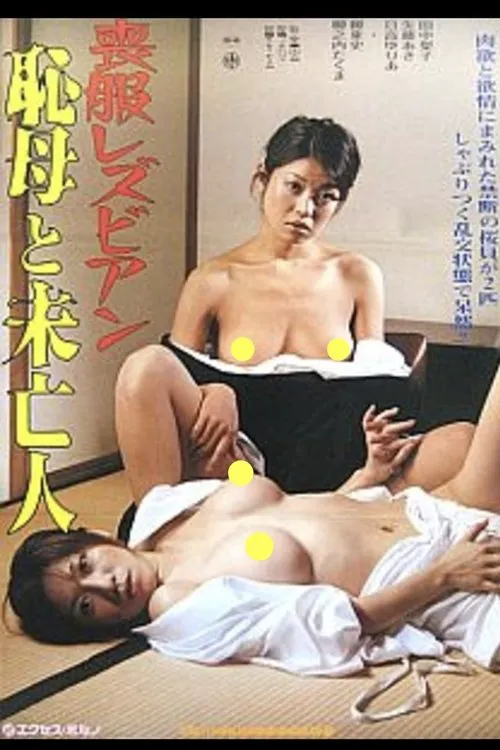Lesbian in mourning Clothes, shameful Mother and Widow

Plot
In a quiet suburban neighborhood, Rie navigates her mundane life as a wife and caregiver, yet she finds herself isolated and disconnected from her partner, Taro. Taro's daily presence is more of a monotonous routine than a nurturing relationship, and Rie feels suffocated by the lack of intimacy and companionship. As a woman in her mid-life, Rie struggles to reconcile her desires and the societal expectations placed upon her. One day, a mysterious middle-aged woman named Mitsuko walks into Rie's life. Mitsuko is a saleswoman for a traditional mourning clothes store, and she visits Rie's house to showcase her latest collection. Mitsuko's arrival is met with a mix of hesitation and annoyance by Rie, who tries to brush off the unwanted visit. However, Mitsuko's persistence is unwavering, and she convinces Rie to try on a traditional mourning kimono. As Rie reluctantly agrees to try on the clothing, Mitsuko makes a startling observation: "You haven't been with your husband recently, have you?" The comment catches Rie off guard, and she is taken aback by Mitsuko's perceptive question. Mitsuko's words are like a spark that sets off a chain of events, making Rie confront the reality of her relationship with Taro. Mitsuko's statement is more than just an innocuous remark; it's a probing question that exposes the cracks in Rie's marriage. As Rie struggles to respond, she is forced to confront the fact that she and Taro have indeed grown apart. They no longer share a physical connection, and their conversations have devolved into superficial discussions. Mitsuko's words cut deep, and Rie begins to question her own identity and the choices she has made in her life. Throughout the film, the relationship between Mitsuko and Rie evolves from a sales transaction to a complex and multifaceted connection. Mitsuko, a widow herself, possesses a unique understanding of the human experience, and she is able to see beyond Rie's facade. Mitsuko's presence serves as a catalyst for Rie's self-discovery, and she becomes an unlikely confidante for the troubled housewife. As Rie's story unfolds, we are presented with a nuanced portrayal of a woman navigating the complexities of middle-aged life. The film explores themes of loneliness, disconnection, and the search for identity. Rie's journey is a poignant reminder that even in the most seemingly ordinary lives, there is always the potential for transformation and growth. The film's title, "Lesbian in Mourning Clothes, Shameful Mother and Widow," is both a reflection of Mitsuko's complex identity and a commentary on the societal expectations placed upon women. Mitsuko, a middle-aged woman who has experienced loss, has learned to navigate the world on her own terms. She is a symbol of resilience and autonomy, and her presence challenges Rie to re-examine her own life choices. As Rie's relationship with Taro continues to deteriorate, she finds herself drawn to Mitsuko's warmth and understanding. The lines between their relationships begin to blur, and Rie is forced to confront the possibility of a same-sex connection. The film's portrayal of Rie and Mitsuko's blossoming relationship is a powerful exploration of desire, identity, and the human experience. Ultimately, "Lesbian in Mourning Clothes, Shameful Mother and Widow" is a powerful and thought-provoking film that challenges societal norms and expectations. Through its nuanced portrayal of complex women, the film offers a nuanced exploration of the human experience, and serves as a reminder that even in the most ordinary lives, there is always the potential for transformation and growth.
Reviews
Recommendations


